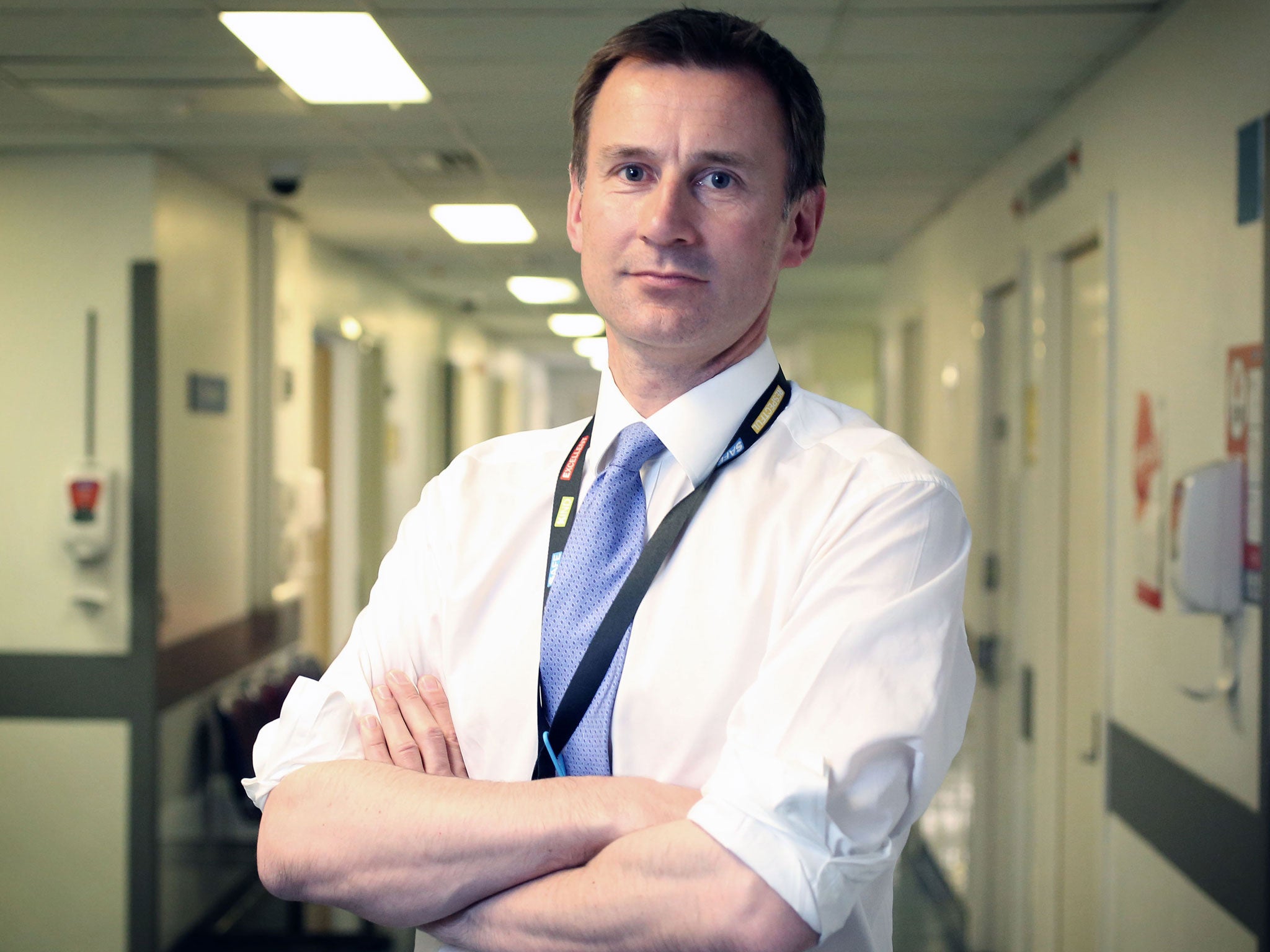NHS sets out new plan to save A&E as email leak reveals funding chaos
Launch of proposals to bring down waiting times marred by scramble for cash

The launch of a new plan to address the crisis in accident and emergency (A&E) units was marred by leaked emails revealing panic among health officials about how much money could be made available to help struggling hospitals.
"Urgent care boards" are to be established across England with a remit to devise "local recovery and improvement plans" for each A&E department in their area, in response to growing concern about lengthening waiting times. However, internal NHS England messages suggest that the Health Secretary, Jeremy Hunt, had wanted to announce a £300m-£400m rescue fund to "solve" problems in A&E, but had to be dissuaded owing to confusion about finances. The plan announced today made no mention of a £400m pot, and last night the Department of Health denied that the Health Secretary ever intended to announce such funding.
But the emails, sent on Wednesday and obtained by the Health Service Journal, reveal turmoil among NHS officials about the proposals.
The local recovery plans as announced, will be funded from existing payments to NHS trusts that are withheld when hospital admissions rise above a maximum agreed level.
Under current rules, NHS trusts whose emergency admissions rise above a base level established in 2008-09 receive only 30 per cent of the NHS tariff, to discourage unnecessary admissions. The remaining 70 per cent is handed to GP-led clinical commissioning groups to be spent on community services. That cash will now be passed to urgent care boards to fund extra GP out-of-hours services, faster in-patient assessment and improved discharge arrangements.
Urgent care boards, backed by a national "support plan" published today, are intended to "give focus" to the problem and "galvanise" local teams, officials said. They will review the performance of out-of-hours GP surgeries, walk-in centres and minor injury units, as well as the care of frail elderly, sick children and "high dependency" patients with drug, alcohol and mental problems.
A longer-term review of urgent and emergency services, including out-of-hours GPs and A&E, is already under way, chaired by the NHS Medical Director, Sir Bruce Keogh, and due for publication later in the year. An interim report is expected to be released early next week. In the emails obtained by Health Service Journal, one unnamed finance officer claimed he had struggled to dissuade Mr Hunt from using a £300m-£400m figure for the new A&E plan. "The SoS [Secretary of State] would like to announce tomorrow that £300m-400m is being invested to solve the A&E problem. We have spent most of the day trying to hold him off doing this," the email read.
A second email from a national official said that from an analysis of financial plans by NHS England's 27 area teams for the current financial year, "we can only see £70m-80m …in plans". Another email said: "We are struggling to bridge from the £300m-£400m to the £70m-£80m. We think this is due to: a) baseline adjustments and b) local contract discussions."
In response, a Department of Health spokesman said: "Today's action plan is the result of co-ordinated and intensive work by NHS England, the NHS Trust Development Authority, Monitor and the Department of Health to help address the pressures on A&E units. We all agree this is about ensuring we get existing money to the right places, so the NHS can meet its commitments to patients.
"As part of this NHS England is working with CCGs around the country to get greater clarity on money identified within existing plans for this purpose. This is being addressed as a matter of urgency."
Professor Keith Willett, the national director for acute care at NHS England, said: "When pressure builds across the health and social care system, the symptoms are usually found in the A&E department. I have lived in that environment for 30 years and I know just how tough it can be."
The news comes after the health and social care regulator warned that demand on NHS casualty units was "out of control" and "totally unsustainable". David Prior, the chairman of the Care Quality Commission, said there should be widespread closures of hospital beds and investment in community care.
Subscribe to Independent Premium to bookmark this article
Want to bookmark your favourite articles and stories to read or reference later? Start your Independent Premium subscription today.

Join our commenting forum
Join thought-provoking conversations, follow other Independent readers and see their replies